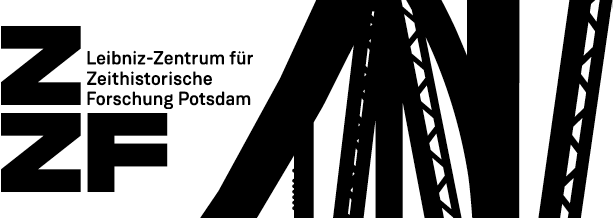Perestroika from Below: Advanced Grant des European Research Council (ERC) für Juliane Fürst
Die Geschichtsschreibung hat dem Projekt der »Perestroika« eine ganz bestimmte Deutung zugewiesen: Es wird häufig als von oben verordnet und von der Person Gorbatschows abhängig beschrieben, als ein Phänomen, auf das die Menschen reagierten, anstatt es zu erzwingen oder zu gestalten. Ein neues Projekt am Leibniz-Zentrum für Zeithistorische Forschung in Potsdam will die Perestroika stattdessen »von unten« betrachten.
Juliane Fürst hat einen Advanced Grant des Europäischen Forschungsrats (ERC) erhalten, um ein Team von zwei Post-Doktorandinnen (Irina Gordeeva und Corinna Kuhr-Korolev) und zwei Doktorand*innen zu leiten, das die Gedanken, Gefühle und Handlungen der sowjetischen Bevölkerung während der "langen" Perestroika der 1980er und 90er Jahre untersuchen wird. Angesichts der Tatsache, dass Putin die Reformen dieser Zeit systematisch rückgängig macht und selbst die Souveränität anderer Nachfolgestaaten der Sowjetunion ignoriert, ist ein Verständnis der Perestroika und ihrer Bedeutung für die Menschen, die sie unterstützt, gestaltet und mit Leben erfüllt haben, wichtiger denn je.
Das Projekt »Perestroika from Below« widmet sich einem wohlbekannten Moment in der sowjetischen Geschichte und will ihn gänzlich neu betrachten. Dabei nimmt es die große Zahl jener Menschen in den Blick, die in den 1980er und 1990er Jahren an dem ehrgeizigen Versuch teilnahmen, das Leben, die Geschichte und die Zukunft der Sowjetunion neu zu definieren. Dazu gehörten nicht nur die vermeintlich liberalen und demokratischen Kräfte, sondern auch die zahlreichen nationalistischen, religiösen und subkulturellen Elemente. Sie alle wurden durch den Umstrukturierungsprozesses geprägt und prägten ihn zugleich selbst mit – mal im Einklang mit, mal gegen die offizielle Politik.
Mit Hilfe von Oral-History-Interviews und anderen Ego-Dokumenten sowie archivierten und veröffentlichten Quellen wird das Projekt den Weg einzelner Individuen rekonstruieren. Es will ihre Motivationen, Gedanken und Handlungen erkunden – weniger im Hinblick auf ihre politische Orientierung, sondern vielmehr, indem es sie als Mitglieder emotionaler und affektiver Gemeinschaften identifiziert. Dabei werden marginalisierte Gruppen ins Zentrum der Analyse gerückt. Zudem will das Projekt die Erfahrungen der sowjetischen Provinzen in den Mittelpunkt stellen, insbesondere die Ereignisse in der außereuropäischen Peripherie.
Juliane Fürst ist Leiterin der Abteilung I »Kommunismus und Gesellschaft« am ZZF. Zuvor war sie Senior Lecturer und Reader an der University of Bristol. Letztes Jahr erschien Ihr neues Buch Flowers through Concrete: Explorations in Soviet Hippieland.
Der European Research Council (ERC), 2007 von der Europäischen Union gegründet, ist der wichtigste Förderer für exzellente Pionierforschung in Europa. Mit den Advanced Grants des ERC werden exzellente Wissenschaftlerinnen und Wissenschaftler aller Fachrichtungen gefördert, die bereits eine führende Rolle in der Forschung einnehmen und eine anerkannte Erfolgsbilanz vorweisen können. Für das Jahr 2021 wurden über 1.700 Anträge eingereicht. Die Gewinnerinnen und Gewinner des diesjährigen Wettbewerbs werden ihre Projekte an Universitäten und Forschungszentren in 21 EU-Mitgliedstaaten und assoziierten Ländern durchführen.
ENGLISH:
Historiography has assigned a very particular understanding to the perestroika project: it is perceived as enacted from above, hinging on the persona of Gorbachev, and a phenomenon to which people reacted rather than forced action upon. A new project at the Leibniz Center for Contemporary History in Potsdam will instead to look at “perestroika from below”. Juliane Fürst received an Advanced Grant from the European Research Council (ERC) to lead a team of two post-doctoral fellows (Irina Gordeeva and Corinna Kuhr-Korolev) and two doctoral students, who will explore Soviet people’s thoughts, feelings and actions during the ‘long’ Perestroika of the 1980s and 90s. With Putin systematically undoing the reforms of the period, including the devolution of the Soviet republics, an understanding of Perestroika and its relevance for the people who supported, shaped and imbued it with life is more important than ever.
The project "Perestroika from Below" is dedicated to a well-known moment in Soviet history and aims to look at it in a completely new way. It focuses on the large number of people who participated in the ambitious attempt to redefine the life, history and future of the Soviet Union and its successor states in the 1980s and 1990s. Not all of them were liberal or democratic forces. The project will thus also take a close look at nationalist, religious, and subcultural elements. They were all shaped by the restructuring process and at the same time helped shape it themselves - at times in alignment with, and at times counter to official policy.
Through oral history interviews and other ego-documents as well as archival and published sources, the project intends to reconstruct individuals’ path into the perestroika experience and follow their trajectories into the 1990s. It aims to explore their motivations, thoughts, and actions - not so much in terms of their political orientation, but rather by identifying them as members of emotional and affective communities. In doing so, marginalized groups will be placed at the center of the analysis. In addition, the project aims to focus on the experiences of the Soviet provinces, especially on the non-European periphery.
The principal investigator Juliane Fürst is head of Department I "Communism and Society" at the ZZF. Previously, she was a Senior Lecturer and Reader at the University of Bristol. Her latest book is Flowers through Concrete: Explorations in Soviet Hippieland (OUP, 2021)
The European Research Council (ERC), set up by the European Union in 2007, is the premier European funding organisation for excellent frontier research. The ERC’s Advanced Grants are designed to support excellent scholars in any field at the career stage when they are already established research leaders, with a recognised track record of research achievements. For the year 2021, over 1,700 applicants have submitted proposals. The winners of the 2021 Advanced Grant competition will carry out their projects at universities and research centres across 21 EU Member States and associated countries.

